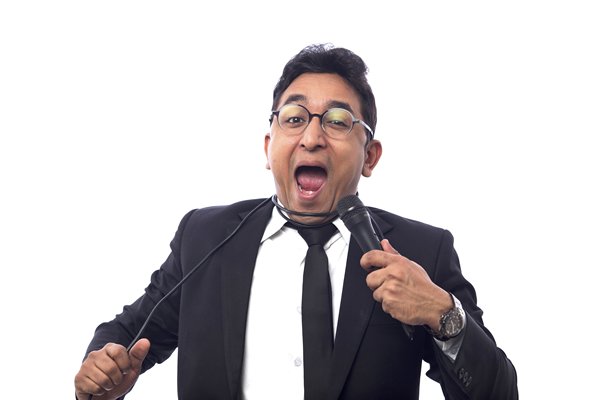Appurv Gupta is an Indian stand-up comedian who withholds No Sir No Madam ideology in his life. He was ranked second in the top 20 Indian comedians by CNN-IBN in 2014. In addition, he was also shortlisted in the Forbes 100 celebrity nominees list of 2015 by Forbes India. He has performed more than 750 shows, including some corporate organizations such as Airtel, Tanishq, Adobe, Amex, and Radio Mirchi.
He completed his graduation in technology from Jaypee Institute of Information Technology, Noida. After finishing his engineering in 2012, he chose to be a stand-up comedian rather than working for corporate offices.
Appurv states — People in India misconstrue respect with salutation. Older generation individuals consider being greeted without a salutation, as a sign of disrespect. I have to deal with a lot of event managers, being into entertainment business.
Sometimes meetings get uncomfortable as it is confusing whether to address them with a salutation or not. Especially, with senior managers, not being addressed with a salutation might make them feel irritating. Elderly people might even consider anyone younger than them, referring by their first-name to be a brat. It is deeply imbibed into people that respect can be shown only by being subordinated to someone else.
Having even performed for some corporate offices, he mentions, “I interact with a lot of executives from private sector as well. I have noticed that a lot of them have now adopted first-name custom, whereas some still follow salutation order.” Furthermore, he opines that this discrepancy exists because of lack of awareness among people. People are habituated to follow ‘Sir/Madam’ tradition.
Appurv had his own firm 2 years back while he was doing shows all over the country. He inculcated the same, first-name tradition, in his office. Appurv weights that, along with first-name practice, employees should also be informed about the discipline, they ought to heed.
Moreover, he remarks that salutation edict is the most dominant in public sector. While interacting with a bureaucrat, a person has no other option except addressing them as ‘Sir/Madam’. Recently, he had to visit a MTNL’s office, and he consciously ensured that he addressed the concerned person with a salutation. He was worried that the official would feel disrespected and obstruct his work.
Appurv adds, “We can be respectful in our act and use ‘ji’ or other Indian terms to show respect. The problem is that government officials have been exercising a formal obeisance since inception. Therefore, they consider it as decorum of public offices and are egoistic about it.” Although, he is hopeful that with younger generation taking up civil jobs, the culture in government offices will change.
He believes that people who have accomplished something noble are worthy of ‘Sir/Madam’ greeting. Consequently, he does not believe in imposing salutation compulsion on people junior to him. Even while dealing with blue-collar workers, he maintains a first-name relation with them. Additionally, he enunciates — it is the responsibility of parents to teach their kids on respectfully communicating with their house-helps and people less fortunate than them.
Appurv opines teaching kids about No Sir No Madam doctrine in school is the most impactful way. Educating them would help in erasing the problem from the root level itself. Students, on growing up, misuse the term ‘Sir/Madam’ to bully their peers.
He narrates his story about his college days, when a senior would ask Appurv to address him as ‘Sir’. Such practices at an education institution make the essence of going to college distasteful.
He ponders that implementing No Sir No Madam in your immediate surrounding as the most effective way of spreading news about it. It would bring about a quicker change as each person would then educate his acquaintances.
He summarizes — We all are inter-dependent on each other. Thus, let us not distance ourselves by establishing hierarchy in society. Goals can be achieved much faster when we work together as friends.







Add comment